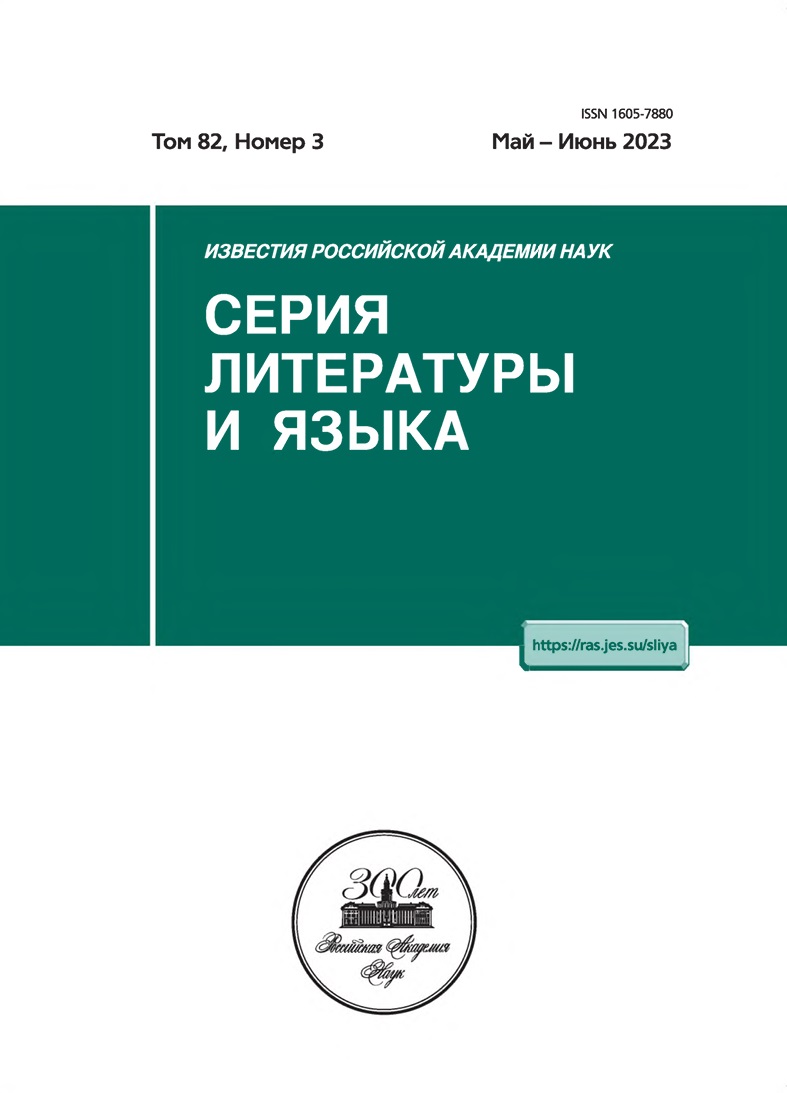The Motive of Foolishness in the Novel by F. M. Dostoevsky “Demons”
- Authors: Krinitsyn A.B.1
-
Affiliations:
- Lomonosov Moscow State University
- Issue: Vol 82, No 3 (2023)
- Pages: 14-24
- Section: Articles
- URL: https://rjonco.com/1605-7880/article/view/656959
- DOI: https://doi.org/10.31857/S160578800026310-7
- ID: 656959
Cite item
Abstract
The first part of the article reviews the study of the theme of foolishness in the “Pentateuch&8j1; of F.M. Dostoevsky and some of his too broad interpretations are criticized. An own understanding of this motive and its real place in the writer’s work is developed. The differentiation of the holy fool and the foolish hero is carried out, as well as the difference between foolishness and buffoonery. In the second part of the work, the motif of foolishness in the novel “Demons&8j1; is considered, since this is the only novel of the “pentateuch&8j1; where this motif really performs an ideological and plot-forming function. The motif of holy foolishness is revealed in a number of characters, such as Stavrogin and Lizaveta Tushina, in addition to literally holy fools (Marya Timofeevna, Semyon Yakovlevich). It is shown how the development of the motif of foolishness in “Demons&8j1; allows Dostoevsky to convey his specific vision of the era of change, since the writer sees the conditionality of the spiritual upheavals of the present historical moment by the Russian national character and the deep layers of the people’s consciousness – the original grassroots religious tradition.
About the authors
Alexander B. Krinitsyn
Lomonosov Moscow State UniversityLeninskie Gory 1, Moscow, 119991, Russia
References
- Лихачев Д.С., Панченко А.М. Смеховой мир Древней Руси. Л.: Наука, 1976. 204 с.
- Лотман Ю.М. Романы Достоевского и русская легенда // Реализм русской литературы 60-х гг. XIX в. Л.: Наука, 1974. С. 129–141.
- Словарь современного русского литературного языка: 17 т. Т. 17: Х–Я. Л.: Изд-во АН СССР, 1965. 2126 с.
- Даль В.И. Толковый словарь живого великорусского языка: В 4 т. М.: Прогресс, 1994. Т.4. 1619 стб.
- Федотов Г. Святые Древней Руси. М.: Ломоносовъ, 2017. 222 с.
- Сараскина Л.И. “Бесы”: роман-предупреждение. М.: Сов. писатель, 1990. 480 с.
- Гурова Е.П. Юродивые в романах Ф.М. Достоевского // Вестник Пермского университета: российская и зарубежная филология. 2014. Вып. 3 (27). С. 136–145.
- Иванов В.В. Юродивый герой в диалоге иерархий Достоевского // Проблемы исторической поэтики. 1994. Вып. 3. С. 201–209.
- Достоевский Ф.М. Полн. собр. сочинений: В 30 т. Л.: Наука, 1972–1990.
- Макаричев Ф.В. Юродство и юродивые в произведениях Ф.М. Достоевского // Проблемы истории, филологии, культуры. 2003. № 13. URL: https://cyberleninka.ru/article/n/yurodstvo-i-yurodivye-v-proizvedeniyah-f-m-dostoevskogo (дата обращения: 19.12.2022).
- Кабакова Е.Г. Юродивые и “юродствующие” в романе Ф. М. Достоевского “Бесы” // Вестник Челябинского университета. Сер. 2. 1997. № 1. С. 92–104.
- Клейман Р.Я. Сквозные мотивы творчества Достоевского в историко-культурной перспективе. Кишинев: Штиинца, 1985. 201 с.
- Иванов В.И. Основной миф в романе “Бесы” // Иванов В.И. Лик и личины России: Эстетика и литературная теория. М.: Искусство, 1995. С. 304–311.
Supplementary files










